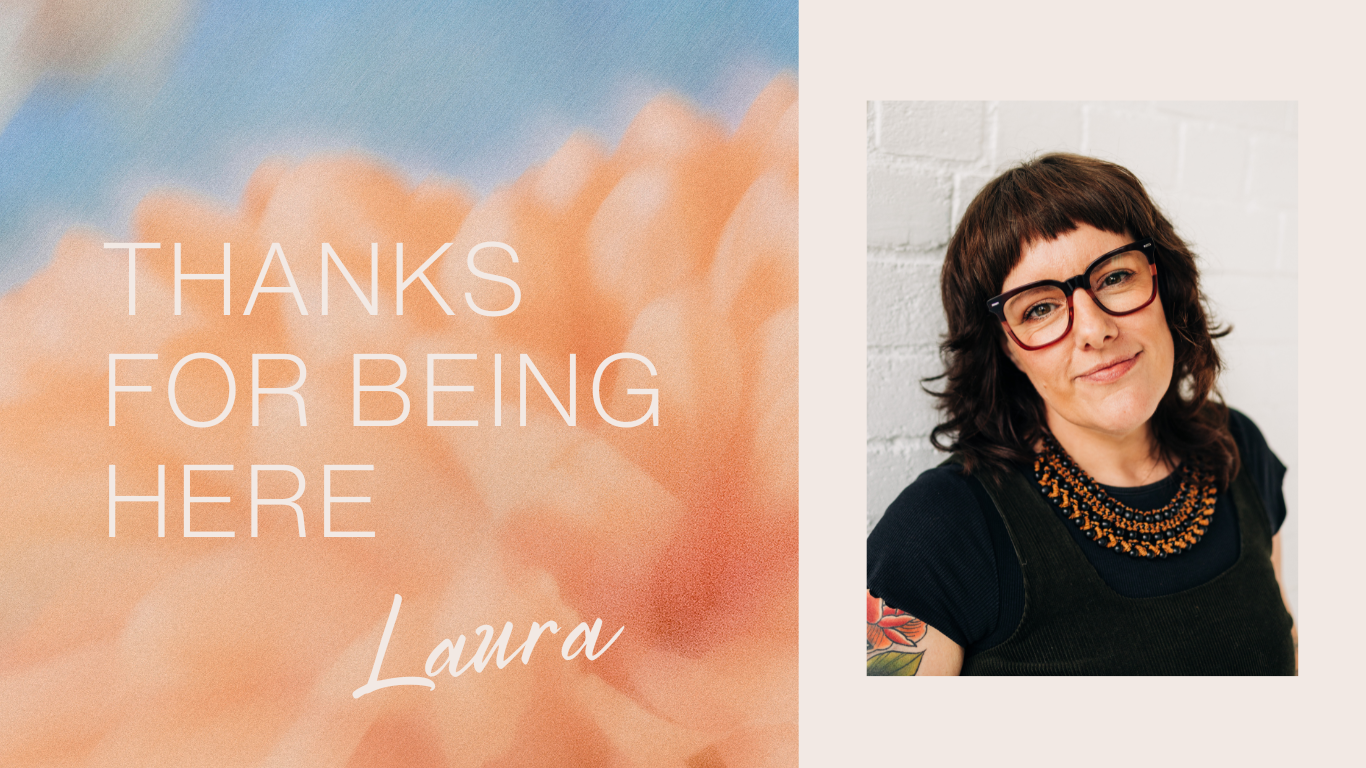Navigating self perception shifts: reflections and growth
Who are you if your story begins to change? Navigating self perception shifts
Today, I want to share some reflections on the evolving nature of self perception; the way that this shifts and how we find our way back to understanding ourselves.
If you’re new here I’m Laura, a counsellor, nature therapist, trauma therapist, meditation teacher and space holder. My work focusses onguiding people back into relationship with themselves, with their bodies and with the wider natural world.
These changes happen often in the therapy room but not always. Sometimes they arrive during unexpected conversations. One minute, you’re moving through life with a particular idea of who you are, an idea shaped by experience, repetition, identity and pain, and then something small but powerful interrupts that narrative.
I had one of these shifts a while ago, when I was exploring something difficult with a friend. They kind of shook my world when they told me "you’re not aware of your own power."
Self concept, the internal understanding we hold about of who we are, is not static.
Up until that point, I had thought of myself as someone who had done a lot of inner work, and I had. I’d spent years unpacking trauma, building self-awareness, strengthening boundaries. But underneath all of that effort was still a lingering belief that I was powerless in certain areas of my life. What I realised in that moment is that our self concept, the internal understanding we hold about of who we are, is not static. I already knew this from a theoretical perspective but I’d never seen it so clearly about myself.
Psychologically, self-concept is shaped by a complex interaction of memory, identity, cognition, emotion and social feedback. It evolves, yet many of us operate from an outdated blueprint. We tell ourselves stories about our lives that may no longer be true, because they’re familiar. We become attached to the narrative self, a concept in psychology that suggests we construct our identities like stories, with beginnings, climaxes, villains and wounds.
My own narrative had been one of survival. Of strength through suffering. And while that was true at one point, I began to see how I was using that story as a shield. I was protecting myself from vulnerability and also keeping others at a distance. In psychological terms, I was projecting a defended self, a constructed persona designed to mitigate risk and keep me safe. But the cost was authenticity and connection.
Who are you if your story begins to change? Do not be so loyal to your suffering that your healing doesn't stand a chance.” Vienna Pharaon
When we lead with our old pain, we ask people to meet that version of us first. In doing this we anchor ourselves to the past and filter new experiences through outdated beliefs. Cognitive psychologists might describe this as a kind of cognitive distortion, where beliefs remain rigid despite changing evidence.
If we want to grow, we have to ask ourselves: Is this story still serving me? Is my perception up to date?
We hold onto our stories because they make us feel safe. Our brains love familiarity. For many of us, trauma shapes our identity but there comes a point where the old story limits instead of protecting us. If we want to grow, we have to ask ourselves: Is this self concept serving me?
We all present versions of ourselves to the world, sometimes the vigilant self, sometimes the strong self, sometimes the self that’s been hurt but is trying anyway. Our self-concept becomes a script that’s reinforced by our brain. When we’re caught in a patterned stress response, the amygdala, the part of the brain responsible for processing fear and emotional memories, takes the lead and this is when our patterned responses show up.
But what if we made more space for accepting the self that we are now? And giving that self space to show up?
Reflections on your self concept. Who are you when your story begins to change?
I invite you to reflect:
What are the old ways you perceive yourself?
Who are you now that your story is changing?
Are there stories you’re telling yourself that no longer reflect who you are now?
What would it feel like to let them go?
Here are a few ways to begin exploring that shift:
Notice what your old self concept gives you. Does it offer safety? Validation? A sense of identity? Sometimes holding on to the past serves a purpose. Recognise it without judgment.
Take inventory. Where are you now? Write down the ways your life and inner world have changed. What evidence is there that the old narrative no longer applies?
Ritualise the release. Write out the old story in full. Then burn it, tear it up, bury it, whatever feels right. Let it go, physically and symbolically.
Reframe the narrative. Instead of viewing your past through a lens of pain, look for resilience, learning, transformation. How did it shape your strengths?
Seek support. Sometimes we need a witness. A therapist can help guide you through the layers of identity and emotion, and help you uncover the self beneath the story.
Your story is not your identity. You are under no obligation to remain loyal to the version of yourself that existed in your suffering.
“Do not be so loyal to your suffering that your healing doesn't stand a chance.”
If you’d like to explore find out more about the way the brain’s patterns show up, including a practical process to challenge them, check out my post The three Rs: recognise, regulate and reframe


